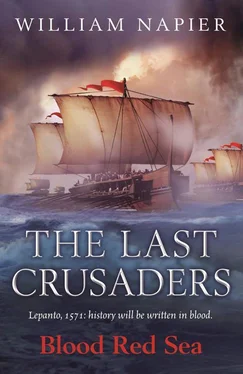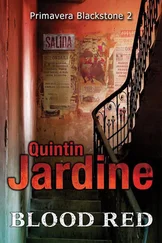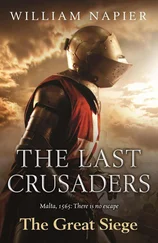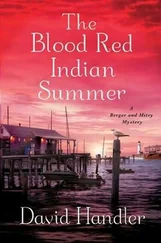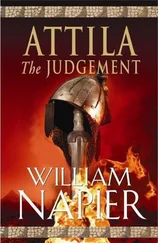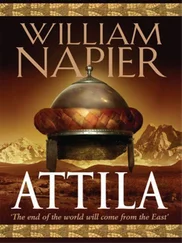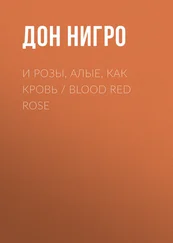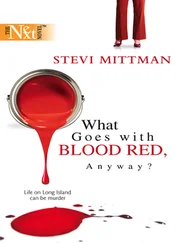William Napier - Blood Red Sea
Здесь есть возможность читать онлайн «William Napier - Blood Red Sea» весь текст электронной книги совершенно бесплатно (целиком полную версию без сокращений). В некоторых случаях можно слушать аудио, скачать через торрент в формате fb2 и присутствует краткое содержание. Жанр: Исторические приключения, на английском языке. Описание произведения, (предисловие) а так же отзывы посетителей доступны на портале библиотеки ЛибКат.
- Название:Blood Red Sea
- Автор:
- Жанр:
- Год:неизвестен
- ISBN:нет данных
- Рейтинг книги:4 / 5. Голосов: 1
-
Избранное:Добавить в избранное
- Отзывы:
-
Ваша оценка:
- 80
- 1
- 2
- 3
- 4
- 5
Blood Red Sea: краткое содержание, описание и аннотация
Предлагаем к чтению аннотацию, описание, краткое содержание или предисловие (зависит от того, что написал сам автор книги «Blood Red Sea»). Если вы не нашли необходимую информацию о книге — напишите в комментариях, мы постараемся отыскать её.
Blood Red Sea — читать онлайн бесплатно полную книгу (весь текст) целиком
Ниже представлен текст книги, разбитый по страницам. Система сохранения места последней прочитанной страницы, позволяет с удобством читать онлайн бесплатно книгу «Blood Red Sea», без необходимости каждый раз заново искать на чём Вы остановились. Поставьте закладку, и сможете в любой момент перейти на страницу, на которой закончили чтение.
Интервал:
Закладка:
The dip of the oars was slow but steady. If any rower faltered, the bull-hide lash of the boatswain would cut his back open. A rower on a slave galley was unlikely to last a year, and was usually grateful if he died before.
Among the Sardinians and Neapolitans, the Sicilians and Spaniards, there were two blue-eyed Northerners. A thickset young fellow with an impassive expression, and another with burning gaze and a pale beard that showed he was fair haired. Thin but strong, his torso showed many scars. Each wore nothing but filthy loincloths and rags on their heads to protect them from the Mediterranean sun. Still the sun blistered ears and cheeks, shoulders and hands. Slave owners commonly tried to keep their slaves in good condition, as they would any other of their possessions, and shielded their rowers with crude canopies. But not these corsairs. They were the dregs even of their low profession.
They were also careless in other ways.
On a Barbary slaver it was usual to work your slaves to death, ditch their corpses and then capture more on a further raid. The supply was endless and free, and that was what the slave galleys did: they consumed men. They existed to enslave their rowers, who rowed that they might exist.
And the life itself — the lawless raiding and ravaging — was itself so dark and seductive a pleasure. Erupting out of the night upon some huddled fishing town, cutting a swathe of bloody terror through its wailing streets, destroying and looting as the fancy took you. A corsair was nothing but a penniless backstreet cut-throat in the shadowy alleyways of Tunis or Algiers or Tripoli, a poor fisherman’s son from some desolate dust-blown village of the Barbary Coast. But on a corsair slaver he was free to follow every desire, to heap up other men’s treasure as his own, to do what he wished with their wives and daughters. None ruled the sea but the gun and the sword alone. And a captain was the king of his ship. Even of so wretched a vessel as the Sweet Rose of Algiers .
Each rower pulled a single oar, but one had collapsed and moved no more. Immediately the rhythm was lost, other oars fore and aft clonking into his trailing blade.
The boatswain was upon him in an instant, beating him and howling curses, but he was too far gone. A fisherman’s son, taken from Sardinia only a few weeks ago. The light was gone from his eyes and his heart had already shrivelled and died within him.
The blue-eyed English youth with the fair beard was called Nicholas Ingoldsby. He glanced at his countryman, Hodge, across the narrow gangway. His eyes blazed. More than the single manacle that fixed a galley slave to the rowing bench in front, it was the manacles of the mind which held him enslaved. Few there dreamed of freedom, most dreamed of death. But in Nicholas Ingoldsby’s burning blue eyes there was no despair.
And the manacle round his ankle was loose.
Five days ago the galley had pulled into a narrow bay on a deserted island and the carpenter had gone ashore to find decent timber. The repair took some hours and the rowers rested, aching with longing to see land so close. But the corsairs’ scimitar points were always at their throats.
‘Slaves you are and slaves you will remain!’ bawled the boatswain. ‘Rebel and you will lose your ears, your noses, your eyes — a blind man can row as well as a sighted! I have seen rebellious slaves skinned alive. And then your throats will be cut and you will go down to feed the fish. No flowers on a sailor’s grave. None on a galley slave’s either. Your seed will die out and you will be forgotten for ever. Now do not stir while we work.’
They did not stir. Anger still burned like a red fire in Nicholas’s belly. As long as he still felt that, he might live. Others here would die. Most of them. But not I, he thought. Not I. Nor Hodge either. Soon our time will come.
They had been through worse than this before.
The corsair who doubled as ship’s carpenter replaced a spar, but in a moment of carelessness let a short iron bolt drop beneath the rowing benches, to subside in the foul water. In a trice Nicholas had clenched it between his toes and kept a hold on it, knowing a man’s life might depend on such a trivial thing. He clung to that iron bolt like a sinner to the Cross.
The boatswain raised his whip. The Sardinian fisher boy was about to be beaten to death before their eyes.
Nicholas bowed his head. He could never bear to watch this final scene, this epilogue to so wretched a life, though he had seen and endured many horrors himself in his twenty-two years. There were many scars on his arms, his lean torso, and a lumpy white cicatrice over his left elbow where a musket ball had once smashed into him as he swam desperately across a harbour. Long ago now. Upon the island of Malta. .
The boy groaned at his trailing oar but could not move himself. The whip cut and cut in pointless cruelty.
For five days now that iron bolt had been passed around, mostly at night, going from one rower to another. It was terrible work, and their punishment had they been caught would have been beyond imagining. Skinning alive would have been the least they suffered.
After five days of agonised filing and wrenching at their manacles, in the snatched seconds when the boatswain was not overseeing them, when they were on rest watch, in moments of darkness when clouds covered the face of the moon and dulled the brilliant Mediterranean stars, they had prayed to God to help them break their single cursed manacles.
And now for three of them, just three, their manacles were broken. Nicholas, Hodge, and the great bearlike Easterner whose language no one else spoke, but who said he came from ‘ Rus, Rus ’. It was scarcely believable. He meant the Grand Duchy of Muscovy, they thought, an almost unknown realm in the heart of snowbound Scythia. None knew how he had come here. But his expression was one that even the corsairs did not like to consider too long. As if the moment he had the chance, he would rise up and tear each of them limb from limb with his bare hands.
The slaves could have waited longer. The precious iron bolt might have been passed on night after night, freeing more and more. But then they might have been discovered. And they could have better chosen their moment to rise in revolt too. A natural time would be when the corsair galley came in sight of its next prey, when they were attacking a Christian merchant ship, and battle was engaged. Then they might just be saved. But to rise up now, only three of them, was suicidal. Patience was as important as courage.
The Sardinian boy groaned, blood coursed from his head and face, and he began to shake and tremble violently all over, his eyes closed. He could no more pull an oar than he could fly. He would die soon, before their eyes. Then his emaciated body would be unlocked from the bench, hauled up and rolled over the low gunwales. He would make barely a splash, his soul already flown to other spheres.
The bearlike Rus turned his great head on his rounded shoulders and glowered at Nicholas from beneath dense black brows. Whether it was a smile was impossible to say. But he showed his teeth. And then he made a noise that Nicholas did not understand. Blowing softly through his lips, he made a sound like a great, distant explosion.
The boatswain gave up his beating and leaned over, unlocking the boy’s manacle. He angrily ordered two of his men to haul in and stow the oar, and drag the half-dead boy aft.
The corsair captain in the stern grinned, his teeth stained with qat. ‘Row on, my Christian gentlemen, row on! Do not be troubled by your dying comrade there. For there is gold still to be discovered, emeralds, amethysts, bars of silver — and of course your white-skinned maidens. .’
The dying boy was dragged to the gunwales.
Читать дальшеИнтервал:
Закладка:
Похожие книги на «Blood Red Sea»
Представляем Вашему вниманию похожие книги на «Blood Red Sea» списком для выбора. Мы отобрали схожую по названию и смыслу литературу в надежде предоставить читателям больше вариантов отыскать новые, интересные, ещё непрочитанные произведения.
Обсуждение, отзывы о книге «Blood Red Sea» и просто собственные мнения читателей. Оставьте ваши комментарии, напишите, что Вы думаете о произведении, его смысле или главных героях. Укажите что конкретно понравилось, а что нет, и почему Вы так считаете.
